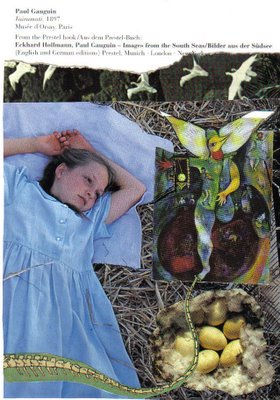
I can hardly believe it's been so long since I've posted. The last two weeks leading up to midterm were hectic. Also, I've felt in myself a real need to sit still and let a lot of my ideas go through a composting. I've been trying to hold onto that part of myself that makes stories, and this means not letting too many obligations pile on top of me and suffocate that source. I've tried to keep the streets and lanes and rivers to that source clear and clean of debris. Because once I get out of school for the summer, I want to hit the ground running: I want to write, write, write.
I've been continuing to do my collages, which I find very helpful. The imagery in the collages is like dream imagery. Doing the collages and then meditating on them afterwards keeps me close to my creative source.
Since I've been blogging, I've talked about two of my favorite books about writing, If You Want To Write, by Brenda Ueland and On Being A Novelist, by John Gardner. I'd like to now add another book to my list of great books about writing: From Where You Dream, by Robert Olen Butler. This book was recently recommended to me by my friend, Paula.
There are so many books about writing. You have to be careful. When you're first starting out and trying to find yourself as a writer, the tendency is to blame yourself for your failure to connect with these books. I know I have blamed myself, calling myself "dense" or, worse, losing heart and thinking I must not be a writer after all, since I apparently wasn't "getting it." What I've come to realize is that there are methods that work for some and not for others. Butler's methods seem to bring together a lot of the ideas I've been struggling toward since I've been blogging.
When Paula first e-mailed me and told me about Butler's book, I hesitated. Did I really want to invite another book about writing into my life? Was this how I needed to spend my time, really? Reading a book about writing when what I should be doing is writing? I'm glad I gave in to my curiosity and got the book. The thesis of the book is that stories come from the same place as dreams. You have to go into your unconscious. Instead of "brainstorming" ideas for stories, Butler says we should be "dreamstorming."
Before you embark on a big project, like a novel, he suggests going into your writing space every day for several weeks and "dreamstorming" onto notecards, one sensory impression per card. He stresses that you have to do this every day. It hit me as I was reading Butler's book, that this is an exercise that may prove extremely useful to me. As so many of you know, I want to do a book about my Ohio River Journey I took last year. Sometimes I feel so overwhelmed by it all--and afraid I'm not up to the task. I feel as James Agee did when he was trying to write Let Us Now Praise Famous Men. Like Agee, I have such respect and awe for the subject matter that I'm afraid I won't do it justice.
The notecard method will be a way for me to tackle the material in small enough doses that I won't feel like I'm drowning; I won't feel overwhelmed by the material. If I start today (which I already have; I've done four notecards) and if I do notecards every day, then by the time school is out, I should have 200 or more notecards, which I can then lay out and sort. Butler swears by the method and says it is a way to deepen themes and find motifs. I believe him.
Of course, I've already done 200 or so notecards based on factual sources. I can mix and match all the notecards together to create a coherent narrative later.
There are many other things in the Butler book that I'm finding useful. I don't think all his methods will work for me, but, like Paula, I feel a deep affinity for most of what he says. I feel a camaraderie with his thoughts on story-telling, and the book is having much the same effect that Ueland's If You Want To Write had on me years ago. I feel energized and filled and ready to embark on difficult projects! Ueland is great for beginners and for periodic renewal. I think Butler is taking me to the "next level." He has effectively synthesized so many of my own thoughts into a very readable and powerful text.
Thank you, Paula for recommending this book to me.
Oh, and thank you, Paula and all who stopped by Paula's blog to wish me well and offer congratulations about the OAC grant, and yell, "Surprise!" That meant a lot to me.



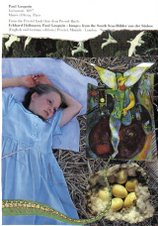


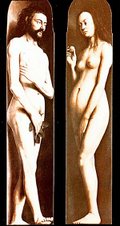

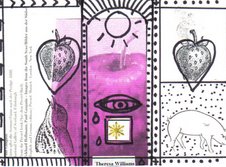
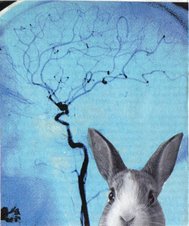
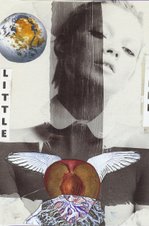
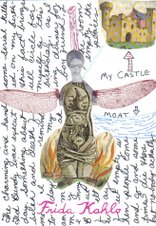
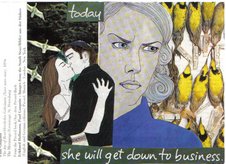

18 comments:
When it comes to reading articles concerning methods of writing, I found Poe's "Philosophy of Composition" quite helpful to me. And it is also interesting that the subject matter of dreams should be considered as storehouses for compositional ideas. I often wonder if Kafka ever did anything resembling the methods that Butler described.
A notecard a day....perhaps on the back of a collage???
hummm....
Guess what I received in the mail just today? My first "we got your submission" letter. I'm gonna put it in binder behind my "stolen" castle.
I adore the collage..... you always unlock doors for me with those. I also love the notecard method. It takes me to the little thumbnails that I draw everywhere, on post-its, napkins, etc. The painting I am working on now was worked out initially on a post-it.
Always creating is a good thing.
Theresa--I can't wait to read about your Ohio River Journey! I'll watch for Butler's book the next time I'm at the bookstore. I still have my copy of Brenda Ueland's book from when I purchased it for your poetry class some years ago. I pick it up when I need inspiration, and I always find what I'm looking for!
Surprise!
I really enjoy your thoughts and advice about writing, Theresa. As you know, I haven`t the formal training in writing that I`d wish and I find your thoughts and suggestions so very helpful. The teacher Theresa just shines through.
Butler is on my list!
Hugs,
V
I love the young Blue Girl, Theresa. She looks very peaceful and dreamy. Would love to know why you placed the spine where you did. I found a copy of the Gauguin original online, and love its richness and dreamy quality. Like yours, only yours is in more muted colors - in part. I like your Pierrot figure, too, if that is what he is. Running, running. I enlarged the image on my screen and there is, once again, so much to see. I do so love your artwork, Theresa.
As for the book, I shall search it out, but again, my contrarian nature digs in its heels at the thought of "structure" and doing something daily. Maybe it's fear of failure, or lack of commitment, rather than contrarianism. Hmm.
Thanks again, for feeding us all with such rich fare, my dear.
Love, Vicky
Vicky, the Man-bird is from a Chagall painting. The spine is a reminder of mortality, death in the presence of life. In Gauguin's painting, the bird has a lizard in its talons (life/death/life). Also, I liked the way it brought the eye around the picture. Thank you, as ever, for your positive energy.
Since the other two writing books are favorites of mine, I am going to try this new one out, too. To go to the next level would be great. Congrats on the award, Theresa!
I really like the idea of the notecards, thanks for sharing that with us. As usual, you have given me a great deal to think about, and for that I am, as always, grateful to you. I agree with V, the teacher in you just shines on through.
Thank you.
:)
Judi
Theresa, I could stare at this collage for hours and hours. It takes me to a strange, peaceful and wonderful place. Rather like you have created a notecard for me! Some inner essence of Theresa seems to come out in certain photos of you. It is a timeless quality of infinite depth. I like it. ~Beth
Strange--I'm sitting in the library, reading your blog and looked up and saw I'm right by the Gardner book. I like the notecard idea because its spatial...you can lay out all your card on a big boardroom like-table and move them all around... I tend to think of ideas spacially--as being besides, above or below other ideas or concepts. Most of all, sitting at a big table clear of everything but your thoughts will make a project sem more legitimate.
Gorgeous moment in this girl and favorite collage of yours to date- So much rich stuff to sift through this post- FYI- Screenwriters use the notecard method too- On a recent project, I dreamed scenes- and would wake and record them- Nothing has come close to this experience except the first few months visiting a new country- when I realized I was dreaming in the language- like walking on unfamiliar ground-
"There are three points of view
from which a writer can be considered:
he may be considered as a story teller,
as a teacher,
and as an enchanter.
A major writer combines these three -
storyteller, teacher, enchanter -
but it is the enchanter in him
that predominates
and makes him
a major writer."
Vladimir Nabokov
lGretchen, you shared the Nabokov quote with me before I went on my boat journey: remember? I took that quote with me on the boat, and I thought about it the whole way. It's good it found it's way back to me again, and on my new blog. Interesting, too, what you say about the screenwriters using the dream card method. Butler talks a lot about writing cinematically. Gardner says the same thing; but somehow Butler's explanation really clarified some things for me. Thanks for your presence here. You always deep what I am trying to say.
I really like these comments about writing methods, and shall pass them on to my son, who so very much wants to be a screenwriter and director. He is writing, writing, writing, and I already told him about the notecard method. I shall pass on what Gretchen said - but then, he's twenty, so he will probably tell me he knew all about that already. Don't twenty-year-olds know everything?
PS I love my word verification for this comment - it's "tibly" - great word!!
Clarification- Screenwriters use notecards as a means of editing- finding the best structure for the most powerful story- as you describe laying them out- This way scenes can be arranged and rearranged in different order- depending on how the story enfolds-if there are flashbacks- flash forward scenes- if one scene interupts another scene- if there is a fantasy or dream scene, etc. Perhaps some screenwriters also use "dreamcards" but this is not what I meant-
Nabakov, when lecturing on Kafka's "Metamorphosis," not only analyzes the emotional and psychological content of scenes but has a tremendous awareness of the structure of scenes in a story- how they build to a climax-
Dreams also have a dramatic structure- and momentum- When you are writing with intensity- sometimes dreams can infect the writing- My sense is to trust this- http://victorian.fortunecity.com/vermeer/287/nabokov_s_metamorphosis.htm
Sorry- Here's the full link to Nabakov's lecture on "Metamorphosis" if you're interested-http://victorian.fortunecity.com/vermeer/287/nabokov_s_metamorphosis.htm
The phrase "writing writing writing" is everything-
Sounds like something I need to read. You know I've had a hard time writing lately. Things just aren't clicking. I blame the weather lol I always write more when the weather is my ideal.
~Lily
Post a Comment